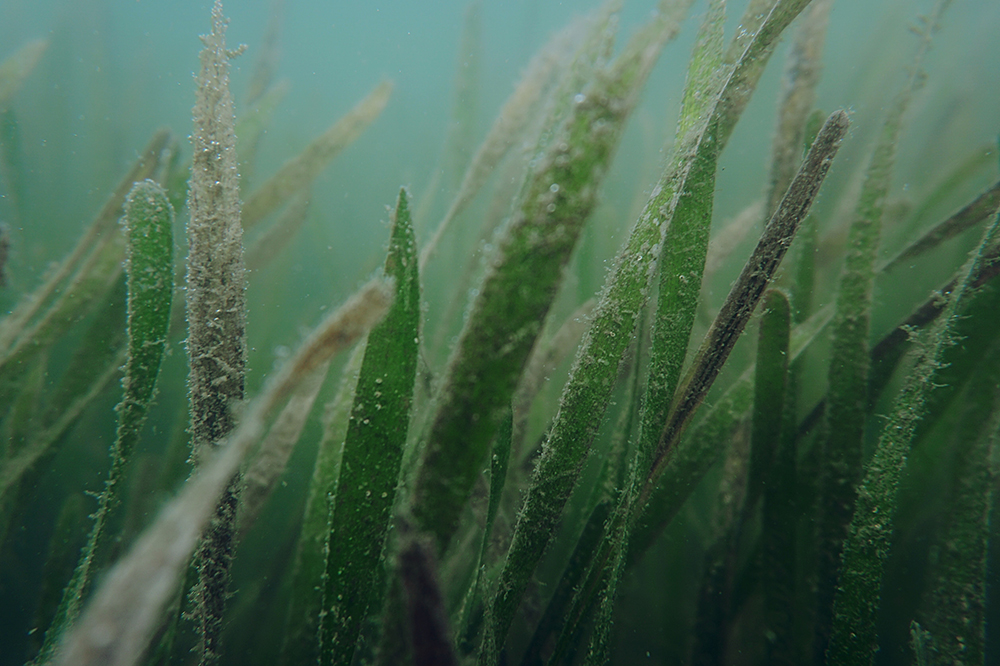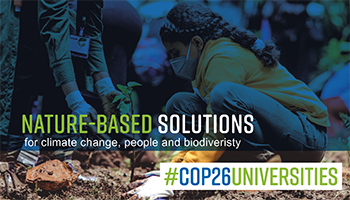Story
Launch of briefing paper on nature-based solutions for climate change, people and biodiversity
27 April 2021
Today sees the launch of a comprehensive briefing paper on ‘Nature-based solutions for climate change, people and biodiversity’ by a collaboration of leading environmental scientists through the COP26 Universities Network, sponsored by UK Research and Innovation (UKRI).

The briefing aims to bring together the current knowledge base on nature-based solutions (NbS) in relation to climate change, and highlights key areas for consideration as well as recommendations for developing this area sustainably.
NbS are solutions to societal challenges that involve working with nature to deliver benefits for both people and biodiversity. NbS have the potential to deliver synergistic benefits across the triple challenge of averting dangerous climate change, preventing the collapse of global biodiversity and promoting human wellbeing.
The briefing emphasises:
- A key strength of NbS is that they can deliver multiple benefits for climate change mitigation and adaptation, enhance biodiversity, promote human wellbeing and support the economic recovery.
- NbS is not an alternative to decarbonising and should encompass sustainable management approaches developed with local communities as well as being resilient to climate change themselves.
- NbS can contribute significantly to achieving net zero emissions, within limits, and should be implemented in a wide range of semi-natural ecosystems.
- There is a need to develop robust metrics to assess the effectiveness of a wide range of NbS for carbon sequestration, water regulation, storm and erosion resistance, biodiversity and human wellbeing.
- Well-designed new financing mechanisms could be instrumental for upscaling NbS and improving social-ecological resilience to climate change, both in the UK and globally.
Dr Ana Queirós, Marine and Climate Change Ecologist at Plymouth Marine Laboratory and contributor to this briefing paper, commented:
“This has been a fantastic opportunity to bring together the best knowledge on nature-based solutions in the UK, across a range of natural sciences on land and the ocean, as well as legal and policy arenas. With this briefing paper, we hope to make the case about how nature-based solutions can help deliver the aims of the United Nations Framework Convention on Climate Change (UNFCCC).”
“The COP26 Universities Network has been a incredible point of engagement between the academic sector in the UK and our governmental leads who are coordinating the 26th Conference of Parties to the UNFCCC in November 2021 (COP26).”
“I was delighted to join other colleagues for this Network’s briefing paper on nature-based solutions, and to be able to share my experiences from a marine climate change research perspective. This included what we currently know and how we are using this knowledge to help practitioners in the UK, EU and around the world to protect and restore species and habitats, under the multi-faceted challenges brought upon by a changing climate system. I was especially pleased to see the inclusion of Blue Carbon habitats in our paper.”
“We at PML have been especially active in the development of nature-based solutions for ocean conservation and fisheries over the years. This is often achieved through large-scale interdisciplinary and collaborative research programmes, such as the recently launched EU Horizon 2020 project FutureMares and the UKRI Global Challenges Research Fund projects in SE Asia and Western Indian Ocean.”
“The UNFCCC COP and the adjacent climate change conference are a fantastic point of confluence for governments, industry, finance, NGOs, academics and civil society more broadly, where diverse knowledge is shared and capitalised upon to deliver solutions that help to curb climate change and address its impacts. The many dialogues that take place in and around the COP elevate voices from youth groups, indigenous groups and other under-represented groups and allows everyone a place at the table.”
“For me, it is a fantastic opportunity to listen to different perspectives, outside Academia. It is also a great place where we can present our research to these different sectors. This helps me to think about how I can make my research outputs more useful in the real world. I try to participate in every way I can. The briefing paper will be shared with that diverse community”.
This briefing was produced in association with the COP26 Universities Network, a growing group of more than 50 UK-based universities and research institutes working together to help deliver an ambitious outcome at the UN Climate Change Conference (COP26) in Glasgow at the end of the year and beyond.
Related information
Nature-Based Solutions for Climate Change, People and Biodiversity (briefing paper)
